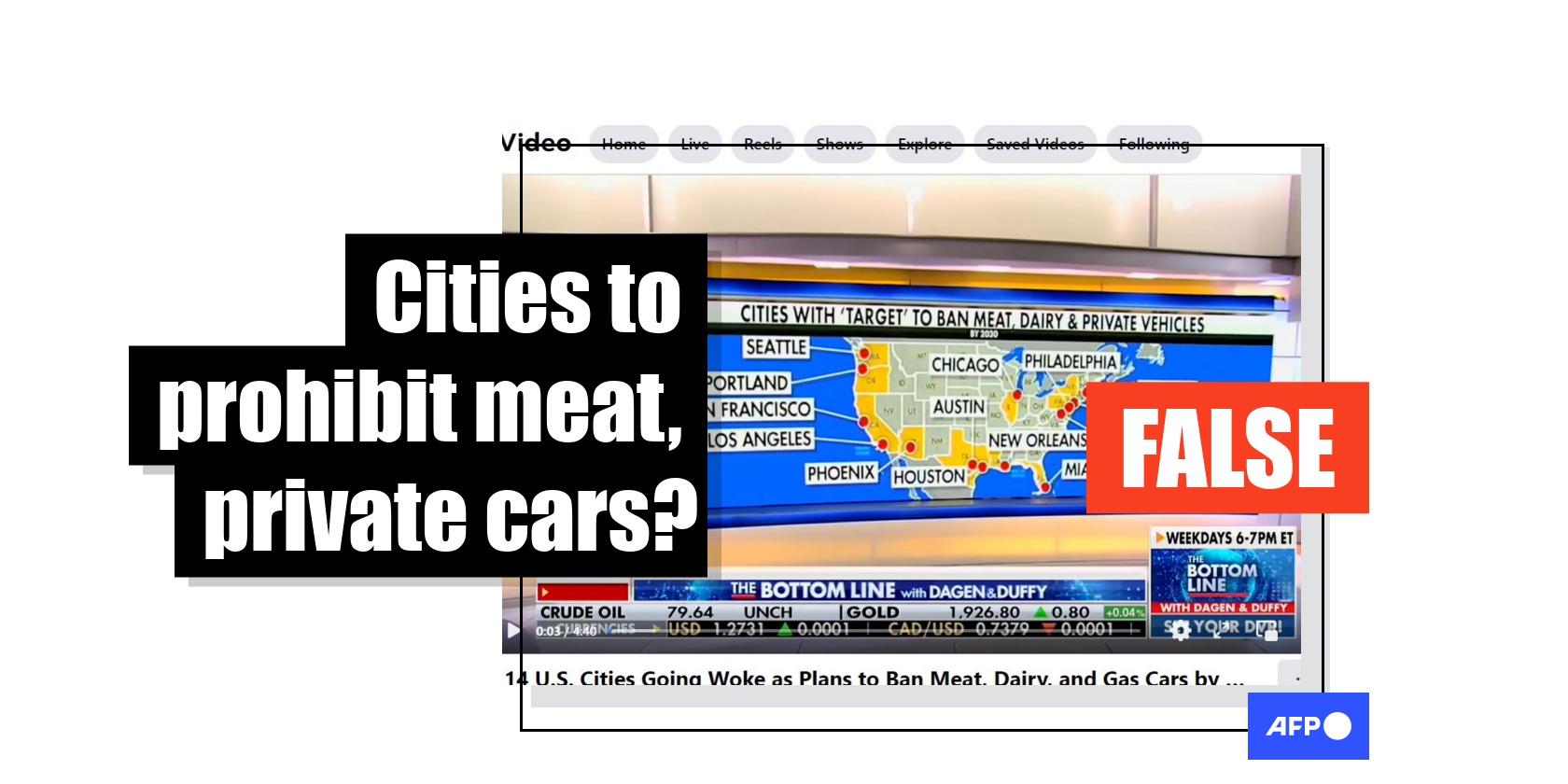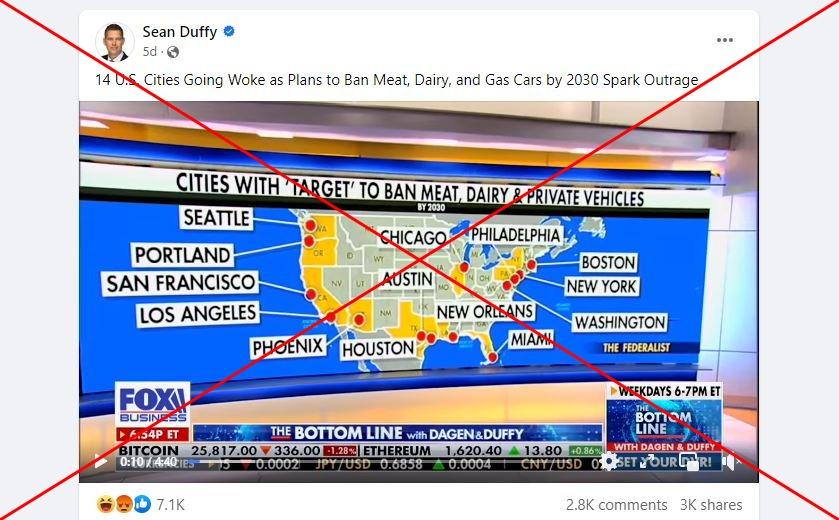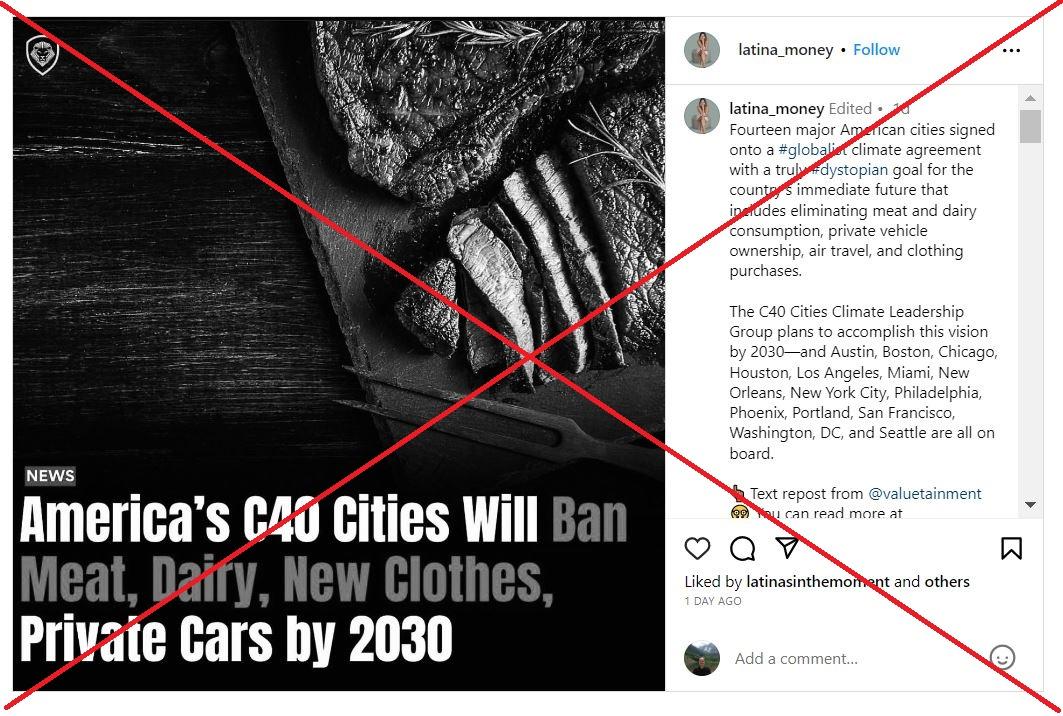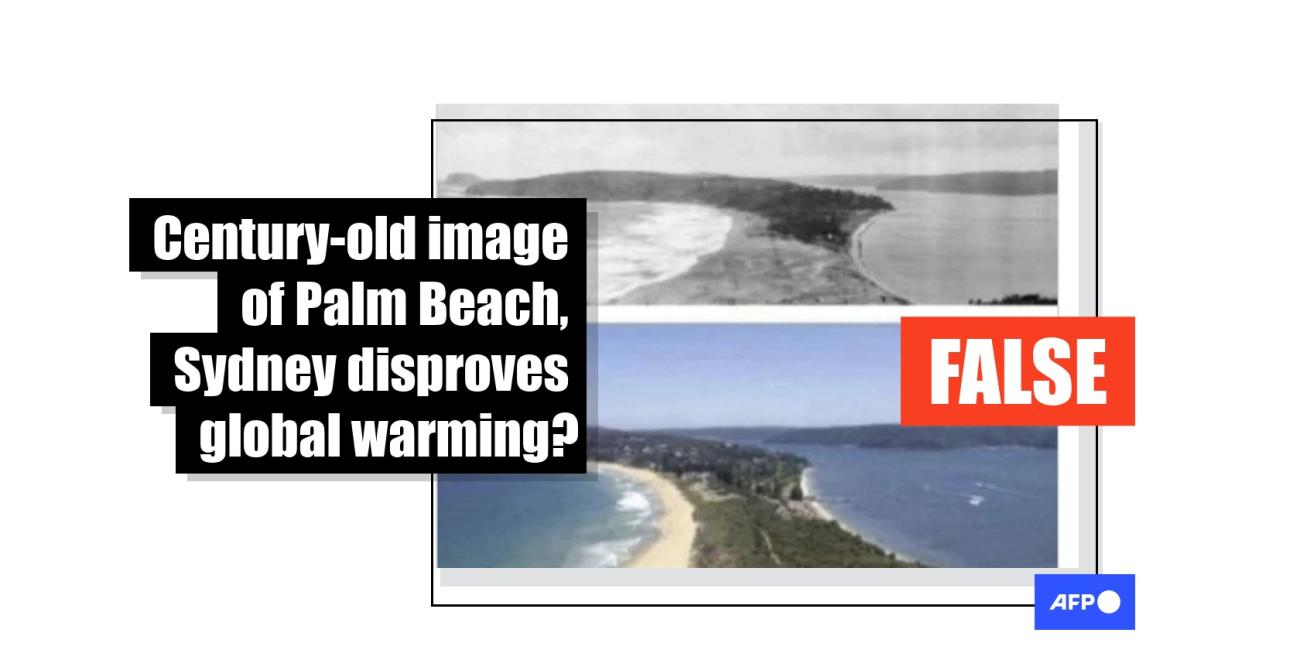
False claims spread on US cities' efforts to curb emissions
"14 U.S. Cities Going Woke as Plans to Ban Meat, Dairy, and Gas Cars by 2030 Spark Outrage," says Fox News contributor Sean Duffy in the caption of an August 24, 2023 Facebook video.
The clip, which garnered more than 170,000 views, shows a Fox Business segment with a map indicating which cities purportedly have a "target" to prohibit such commodities, including Seattle, New Orleans and Washington.
Similar claims spread on Instagram and TikTok, as well as in articles shared online. Some link the supposed plans to the World Economic Forum (WEF), a common target of misinformation.


The posts mention the C40 Cities Climate Leadership Group, a global network of nearly 100 mayors and local officials seeking to fight climate change. Although the group has a page on the WEF website (archived here), it is not part of the nongovernmental lobbying organization.
In addition to the C40 members, more than 1,000 cities around the world have pledged to work toward the same goal of reducing emissions (archived here). Posts in English, Finnish and French claim this larger group is also set to impose consumption bans.
The narrative stems from a June 2019 C40 report (archived here) that analyzes how changes in lifestyle and consumption patterns would affect greenhouse emissions.
However, the document does not propose banning any specific products, as AFP has previously reported.
"The report is an analysis of consumption-based emissions in C40 cities -- not a plan for cities to adopt, let alone a legally binding treaty," a C40 spokesperson said in an August 29 email. "It's up to individuals to make their personal lifestyle choices, including what type of food to eat and what type of clothing they prefer."
What the report says
The C40 study modeled how five different food-related interventions would affect the progression of global warming. The report includes both "progressive" and "ambitious" targets for 2030.
The latter scenario posits zero kilograms of meat and dairy consumption, a limit of 2,500 calories per day and zero household food waste.
"If C40 cities change their food consumption habits in line with the identified progressive targets, the category's emissions could be cut by 51 percent between 2017 and 2050," the report says. "The adoption of ambitious targets would enable an additional nine percent reduction."
The document also includes an ambitious target of limiting new clothing items to three per person per year, as some posts allude to.
But those numbers are not policy recommendations.
"No C40 city mayor has agreed to force people to eliminate meat and dairy consumption, or otherwise severely restrict consumption," the C40 spokesperson said.
"To successfully transition to a lower-carbon economy, cities must balance their ambition with what's financially, technologically and culturally feasible. No one city or nation will follow the exact same emissions reduction pathway."
Phoenix, other cities
Some posts specifically mention Phoenix, Arizona -- whose mayor, Kate Gallego, is on the C40 steering committee. They claim she is "at the forefront of a globalist effort to ban meat, dairy, and private cars by 2030."
But a mayoral spokesperson told AFP the city has no such plans.
"I can confirm that the Phoenix is not on track (nor does the mayor have plans) to ban meat, dairy or private cars by 2030 as falsely stated," the spokesperson said in an August 29 email.
A spokesperson for Austin, Texas, another one of the 14 cities cited in the posts, also told AFP the claims are "misinformation."
"Austin is not planning to ban meat, dairy or private vehicles by 2030," the spokesperson said in an August 28 email, sharing a copy of a city climate plan (archived here) that calls for changes in municipal purchases and housing but not product bans.
AFP has previously fact-checked false claims about a purported meat ban in New York, another one of the 14 cities mentioned online.
Copyright © AFP 2017-2026. Any commercial use of this content requires a subscription. Click here to find out more.
Is there content that you would like AFP to fact-check? Get in touch.
Contact us




